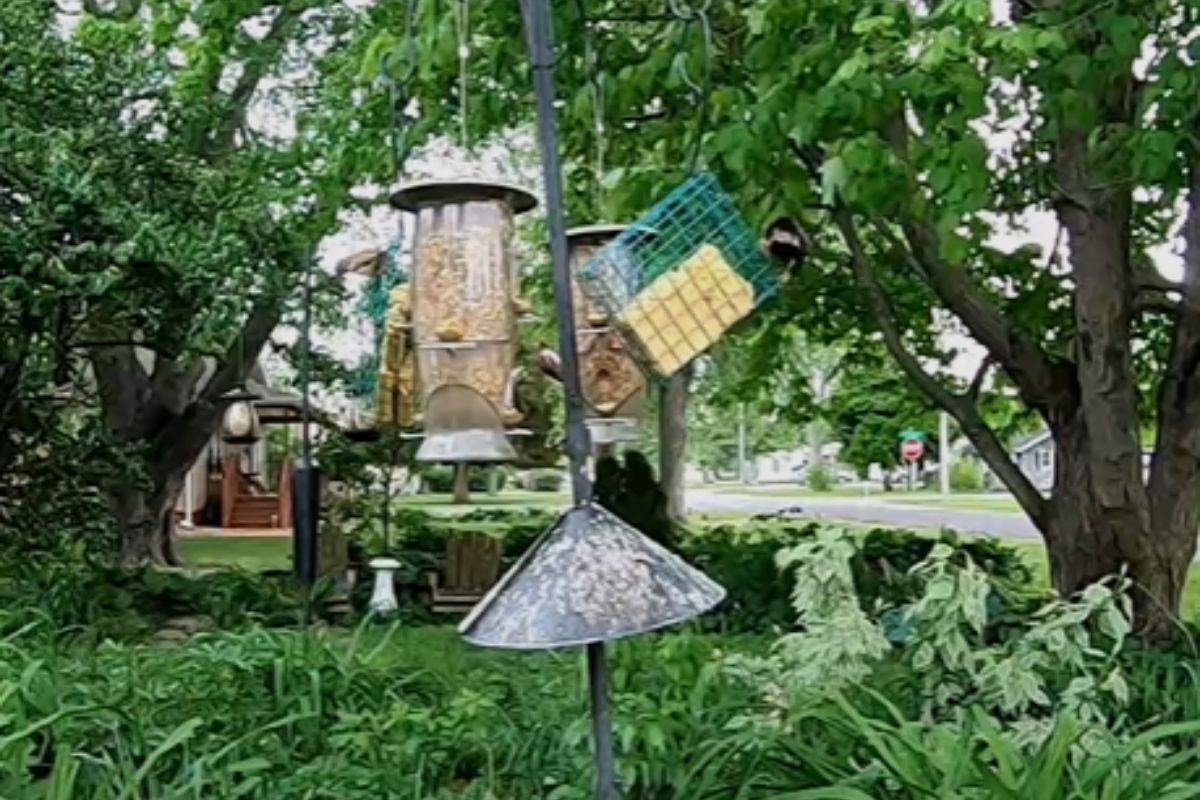Bird feeders are a durable and enjoyable way to feed and observe birds. Whether you’re interested in Blue Jays, Robins, or sparrows, bird feeders provide an up-close view of your favorite birds and add a touch of passion to your home.
As a bird watcher with multiple bird feeders, I often worry about how they will fare in the rain. While some feeders can withstand rain, others may not be as resilient. This article aims to answer the question, “Can you leave bird feeders out in the rain?” based on personal experience and research.
Rain itself is not a major concern for bird feeders, as they are typically made of durable materials such as plastic, metal, or ceramics. However, the wind can pose a problem if the feeders are not properly mounted. Window-mounted feeders with strong suction cups should be fine in the rain, but older feeders with weak suction cups may need to be removed during rainfall. Similarly, feeders hung by chains or clamps may be at risk if not securely attached or properly installed.
The main issue with rain is the clumping of seeds. When seeds become wet and clump together, they can be harmful to birds, potentially causing choking and blocking the passage for more seeds. Therefore, it is important to ensure proper drainage in bird feeders to prevent seed clumping. Additionally, placing feeders on poles or stands under a covered porch or patio can provide extra protection from rain.
To further protect bird feeders from rain, here are five recommended methods:
- Move your bird feeders indoors before the rain starts.
- Install a rain guard above the feeder to shield it from rain.
- Attach a baffle, typically used to deter squirrels, to protect the feeder from rain.
- Consider using all-weather feeders designed to withstand various weather conditions.
- Improve drainage in your bird feeder by expanding existing holes or adding more holes, or by elevating the feeder with gravel or mesh.
It is crucial to prevent seeds from getting wet, as wet seeds can quickly spoil, mold, and spread bacteria that may be harmful to birds. Wet seeds also emit an unpleasant odor. Signs of spoiled seeds include clumping, sprouting, and germination. If seeds have gone bad, they should be discarded, and the feeder should be cleaned.
It is important to take precautions to protect bird feeders from rain. By following the suggested tips and ensuring proper drainage, you can keep your bird feeders and seeds dry, providing a safe and enjoyable feeding experience for your feathered friends.
